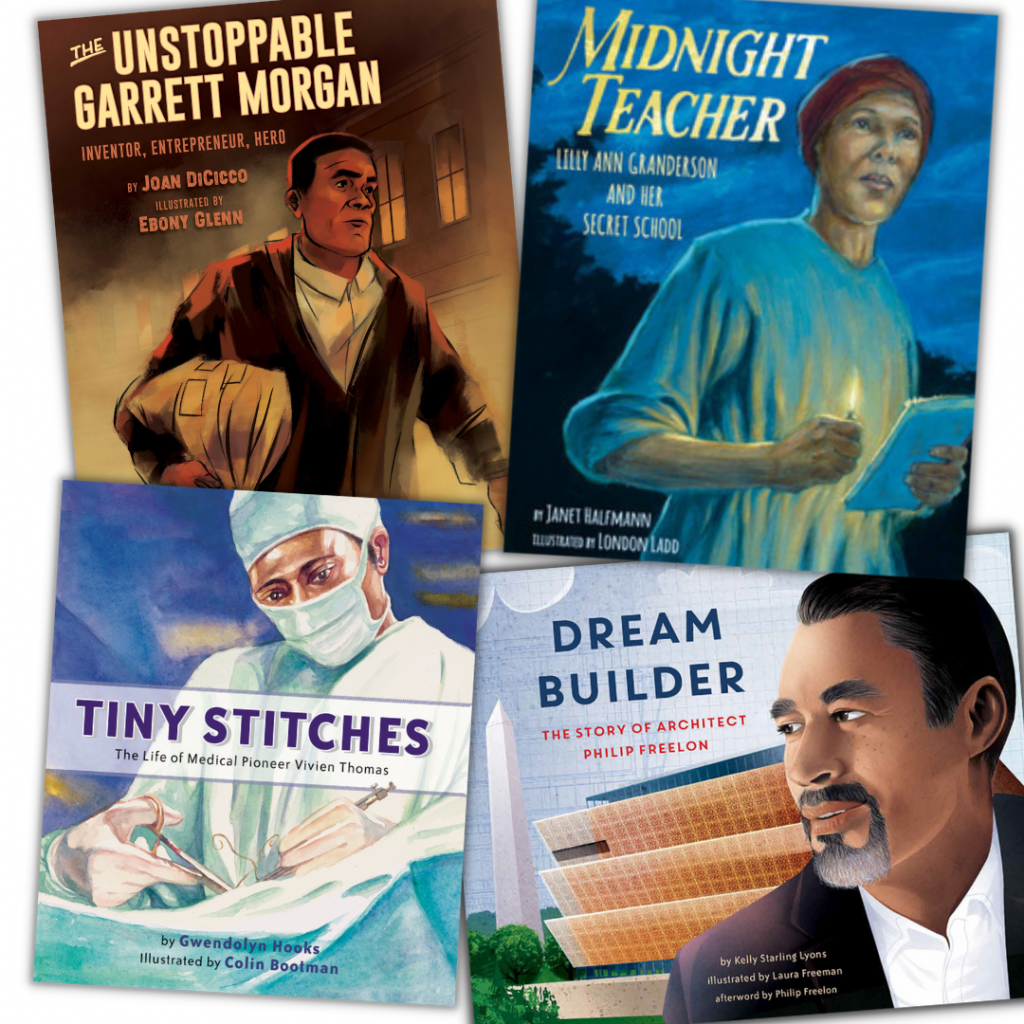
In this blog post, Katie Potter, Senior Literacy Specialist at Lee & Low Books, offers guidance on teaching Black history not only during Black History Month, but throughout the year as well. This blog post first appeared on Responsive Classroom.
Black History Month is a critical time to acknowledge the systemic oppression and racism that Black people have experienced in this country while also celebrating their incredible contributions to American history and society. Heritage months were established to honor cultures that otherwise went ignored or underappreciated. However, observances like Black History Month often get relegated to featuring books and relevant materials for just that one month.
Our goal as educators is to highlight the achievements of particular cultures during a heritage month like Black History Month but also ensure that our efforts are sustained throughout the year and are part of our everyday teaching. Black history is American history, and it’s critical for this value to be part of your pedagogy.
Here are some tips for digging deeper into Black history and incorporating it in your pedagogy beyond a single month:
- Provide books about Black joy to highlight that Black people also experience happy childhoods, have wonderful relationships, and are part of loving and caring communities. Check out Books About Joy: A Diverse Reading List to get started on developing a collection featuring diverse, joyful books.

- Feature Black biographies showcasing lesser-known historical figures all year long. Rosa Parks and Martin Luther King Jr. should be included in your core curriculum, but people like Garrett Morgan, Vivien Thomas, Lily Ann Granderson, Philip Freelon, and others also deserve to be recognized. Ask students to think about why these unsung heroes aren’t frequently taught and what they can do to learn about other prominent Black people who are not included in a traditional curriculum.
- Teach diversity within diversity: you may have books with Black protagonists, but are they only about slavery or the civil rights movement? Look to add books and materials that explore the range and diversity of experiences, time periods, geography, voices, and perspectives within a culture and group of people.
- Think about the books and materials your school currently uses during Black History Month: how can those books and materials be used in other units, such as in science class or in a poetry unit? Make sure that the books and materials your school is using during Black History Month can also be used in other interdisciplinary subjects. Emily Chiariello, in her article “Heritage Months: Hard to Handle?,” writes about teaching Black historical figures all year long—in units about World War II, physics, English and language arts, and other subjects. This works to prevent the perpetuation of Black marginalization.
- Reflect on the practices of your school and district, as well as your own practices. How have you taught during Black History Month in the past? What do you want students to take away from this month’s lesson? What can you do to improve how students learn in the future?
It’s important to acknowledge and celebrate Black History Month. Let us not stop there. When we incorporate biographies and stories that feature Black people into our teaching beyond the heritage month, we provide students with wonderful opportunities to see themselves, learn something new, and connect with the content on a deeper level. We are benefiting all students by including books and materials featuring a range of BIPOC (Black, Indigenous, and People of Color) experiences all year long.
For more resources to guide your teaching, consult the following organizations:
The National Museum of African American History & Culture
Schomburg Center for Research in Black Culture (including its #SchomburgSyllabus for educators)

